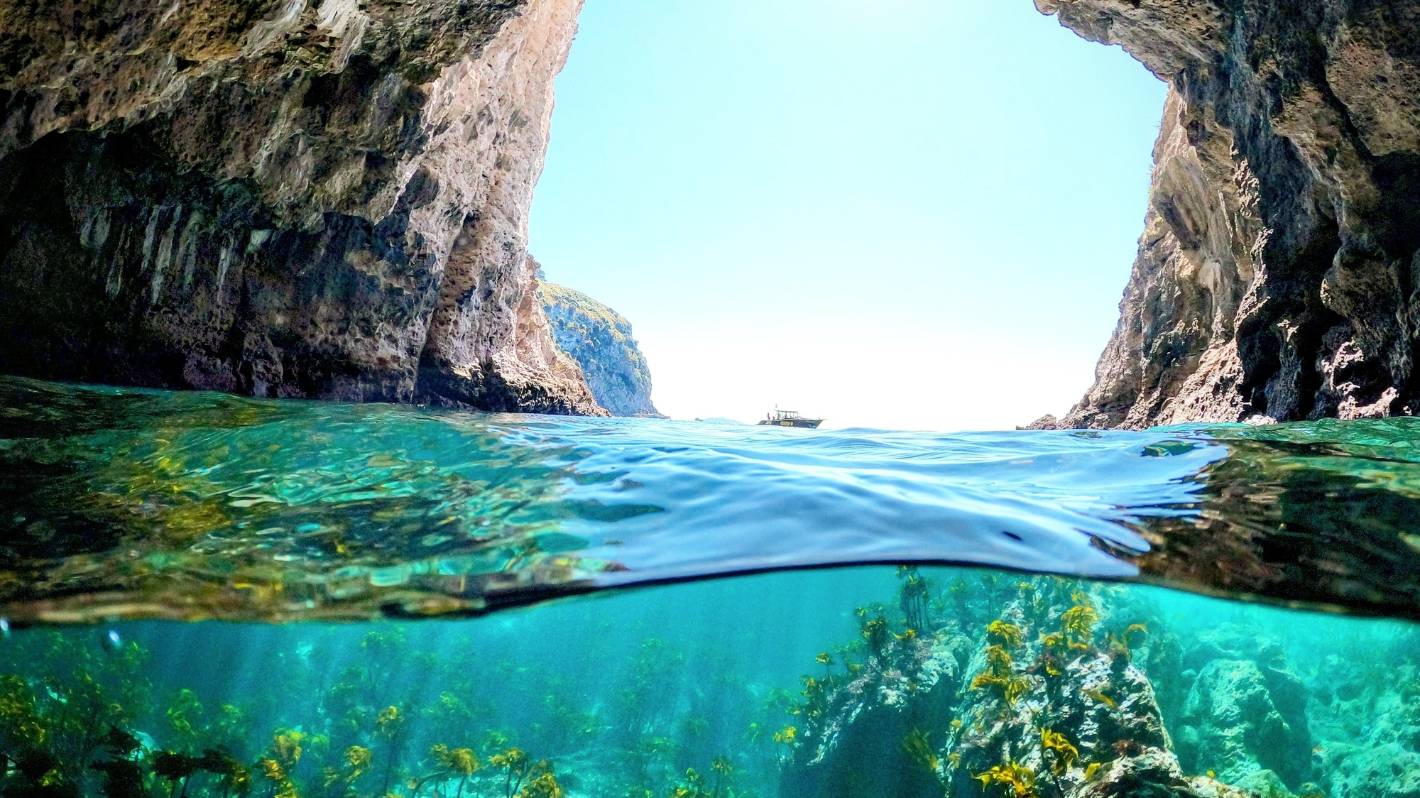Supplied
The Poor Knights Island marine reserve is home to an abundance of marine life and is known for its diving – but all that is now under threat.
The “jewel in the crown of marine reserves”, in the Poor Knights Islands, risks ecological destruction as ocean warming causes a surge in sea urchin numbers – crippling flora and fauna in the area.
The Poor Knights Islands marine reserve sits out from Northland and the Hauraki Gulf and is known around the country as an area with an abundance of marine life and excellent diving.
All that is now under threat, as new research shows an almost 10 times increase since 1999 in sea urchin numbers is taking its toll on the environment.
According to the Department of Conservation, the long spine black urchin, Centrostephanus rodgersii, which naturally occur in New Zealand, have been increasing in the area due to climate change.
The species is forming “barrens”, normally produced by kina, where large quantities of urchins strip away the flora and fauna on reefs, creating an open area – depleted of life.
DOC Whangārei ranger Evan Davies said the area is renowned for its biodiverse vertical reef walls and caves covered with sponges, bryozoans, ascidians, anemones and encrusting algae.
The urchins’ predators are rock lobsters, but the population in the area is very low, due to historical overfishing, which means there’s no natural control for sea urchins, he said.
”[This poses] a real risk of extensive ecological destruction to this unique ecosystem.”
Sara Kulins/Hauraki Gulf Forum
The long-spined sea urchin, Centrostephanus rodgersii, have been forming barrens in the Poor Knights Island (file photo)
The situation has reached the point where action must be taken before biodiversity is compromised, Davies said.
DOC recently sought scientific advise from The University of Auckland and Te Whānau a Rangiwhakaahu to discuss ways to protect the reserve.
The groups decided destroy all urchins in a test patch, to see if manual removal was a possible long-term solution.
UoA Associate Professor of Marine Science Nick Shears said it’s too soon to be able to predict the outcomes of the test, but it’s obvious the rock walls are already heavily grazed.
“We’re basically expecting things to get worse if nothing is done about it.”
BROOK SABIN
Want to have a tropical island escape without leaving New Zealand? Try this…
Shears said there’s a need to take a precautionary approach to managing important predator species – so there are natural balances to species like the urchins.
“It’s the jewel in the crown of marine reserves,” he said, and the walls and archways have historically had diverse and colourful encrusted flora and fauna.
DOC said large-scale removal of the urchins would not take place without strong evidence to show the recovery of the rock walls.
The test patch will be monitored for the next two years.



